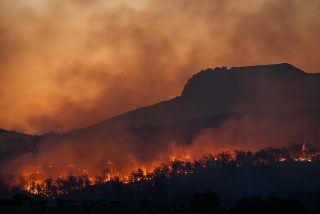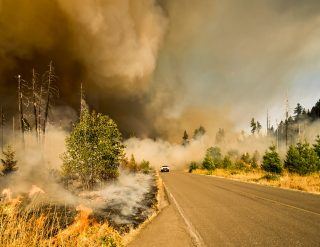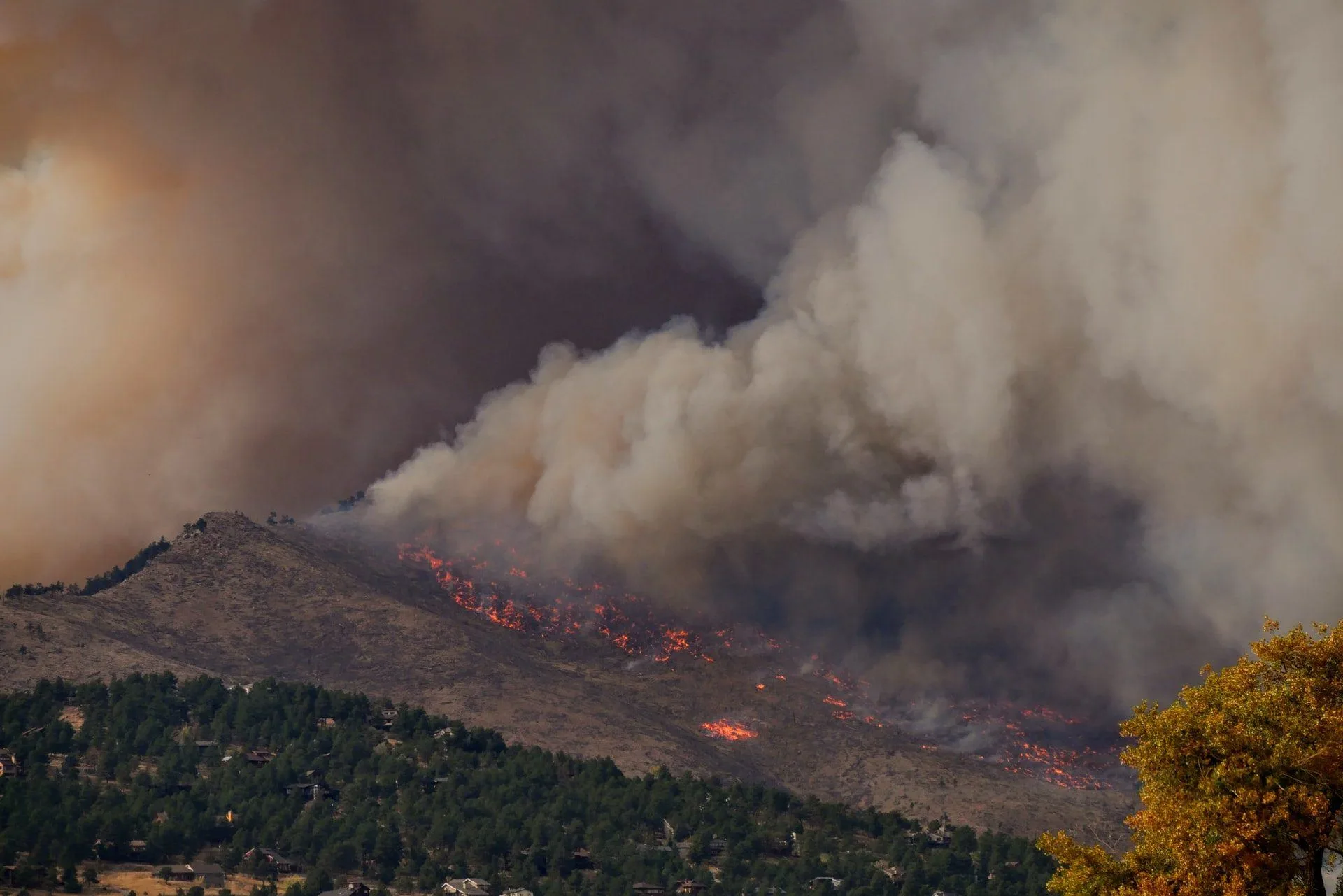Climate change is real, and we’re witnessing its very harsh effects in real-time. Temperatures are soaring, and mother nature isn’t the only one suffering. While some may think that hotter days aren’t a serious enough problem to raise the alarm, a recent study found that rising temperatures as a result of climate change are harming the human race just as much as it is the planet.
Heatwave pandemic
Thanks to climate change, the World Health Organization found that more and more people are being exposed to heatwaves,

Photo by Matt Palmer on Unsplash
“Between 2000 and 2016, the number of people exposed to heatwaves increased by around 125 million,” the health body estimates. Unfortunately, the higher the exposure, the more people’s health is at risk for heat-related deaths. In fact, it appears that heatwaves are responsible for more deaths than we would have initially thought.
For one, an analysis published in Environmental Epidemiology found that the number of heat-related deaths in the US each year has been underestimated. This is because records usually only look at deaths due to heatstroke, and ignore other potentially heat-related causes of death, like heart attacks and other underlying conditions like asthma.
This then begs the question of how many lives have heatwaves taken?
The study on heatwaves death tool

Photo by Kouji Tsuru on Unsplash
A study published in Nature Climate Change earlier this year examined data from 723 locations in 43 countries between 1991 and 2018. The team used data, which included heat-related mortality and temperature readings from the places to created a model that calculated how many deaths could be linked to climate change.
The researchers made sure to analyze past weather conditions created under scenarios with and without emissions triggered by human activity. This allowed them to focus on warming and related health impacts linked to human activity.
What did the study find?
“Taken together, our findings demonstrate that a substantial proportion of total and heat-related deaths during our study period can be attributed to human-induced climate change,” the authors wrote.
Specifically, the findings revealed that 20 to 76% of heat-related deaths in warm seasons could be linked to climate change. It found that 35% of deaths in the United States can be blamed on climate change, with Honolulu having the highest climate-change-related heat deaths at 82%.

Soloviova Liudmyla/Shutterstock
“It’s a kind of call to action to prevent or try to attenuate potential effects which, of course, will be much higher in the future as long as global warming goes on. The main message is … you don’t have to wait until 2050 to see increases in heat-related deaths.” senior study author, Prof Antonio Gasparrini of the London School of Hygiene & Tropical Medicine.
Climate change inequality
Due to a lack of data, the study excluded many areas of Africa and Southeast Asia. It’s important to gather this information, especially when we remember that these areas are often the most affected by climate change.
“The countries where we do not have the necessary health data are often among the poorest and most susceptible to climate change, and, concerning, are also the projected major hot spots of future population growth,” argued a commentary published alongside the paper, “Obtaining these data will be key for science to provide the information needed to help these countries adapt.”
The world is on fire – literally
Greece is facing one of its worst heatwaves in history, whereas deadly wildfires continue to spread across Turkey. In the United States, the recent heatwave led to 107 deaths in Oregon.

Photo by Marcus Kauffman on Unsplash
“They tell us that people are already dying on every continent due to increases in heat stress caused by human-induced climate change,” Dr. Clare Goodess, a senior research fellow from the school of environmental sciences at the University of East Anglia told the Guardian,
“This highlights the imperative for global action to cut greenhouse gas emissions. It is more important than ever that meaningful agreements emerge from [UN climate conference] Cop26 in November.”
How can I deal with a heatwave?
If you’re currently dealing with a heatwave, there are a few things you can do to protect your health. The NHS suggests the following:
- Stay cool indoors
- Close curtains on rooms that face the sun to keep indoor spaces cooler. Remember that it may be cooler outdoors than indoors
- If going outdoors, use cool spaces considerately, keep your distance in line with social distancing guidelines.
- Drink plenty of fluids and avoid excess alcohol

Syda Productions/Shutterstock
- Never leave anyone in a closed, parked vehicle, especially infants, young children, or animals
- Try to stay out of the sun between 11 am to 3 pm
- When outside, walk in the shade, apply sunscreen regularly and wear a wide-brimmed hat
- Don’t forget to travel with water
- Avoid exercising in the hottest parts of the day
- If you are going into open water to cool down, take care and follow local safety advice
- Keep an eye out for those who may struggle to keep themselves cool and hydrated. These include:
- Older people
- Those with underlying health conditions
- Those who live alone are particularly at risk
The bottom line
“Climate change is not something in the distant future,” said Gasparrini to the AFP news agency.
The time for conversation is over. We need to act – now.
References
Vicedo-Cabrera, A.M., Scovronick, N., Sera, F. et al. (2021). The burden of heat-related mortality attributable to recent human-induced climate change. Nat. Clim. Chang. 11, 492–500. https://doi.org/10.1038/s41558-021-01058-x
Weinberger, K. R., Harris, D., Spangler, K. R., Zanobetti, A., & Wellenius, G. A. (2020). Estimating the number of excess deaths attributable to heat in 297 United States counties. Environmental epidemiology (Philadelphia, Pa.), 4(3), e096. https://doi.org/10.1097/EE9.0000000000000096






![women [longevity live]](https://longevitylive.com/wp-content/uploads/2020/01/photo-of-women-walking-down-the-street-1116984-100x100.jpg)










